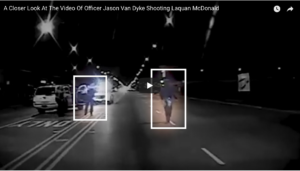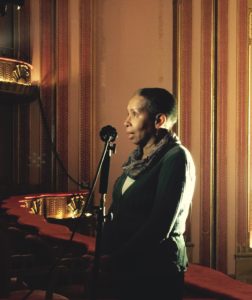Mondays with Mike: Supreme whiner
October 1, 2018 • 9 Comments • Posted in Mike Knezovich, Mondays with Mike, politicsThe SCOTUS nominee hearings play out in Washington while, here in Chicago, the murder trial of a police officer proceeds. In a literal sense, they have nothing to do with each other. To me, though, their juxtaposition speaks volumes about what’s wrong with us.
In D.C, a man is about to be given a lifetime appointment to one of the most important and powerful government positions in the world. Caution would seem to be in order. He is not on trial; therefore innocent until proven guilty does not apply. Because there are so many other qualified candidates (say, Merrick Garland) about whom there would be no reasonable doubt in terms of disposition or character (see Gorsuch hearings), I would not consider moving onto one of them in light of sexual abuse allegations any great injustice. The current nominee would continue with his cushy life. He would get over the disappointment.
Here in Chicago, a police officer faces years—maybe the rest of his life—in prison for shooting a teenager named Laquan McDonald 16 times. McDonald, needless to say, did not survive. All the usual subtext is there. There is video of the horrible event. By my judgment, there is no justification for one bullet, let alone 16. But Laquan, you see, was not one of us. He was in court countless times, he could be aggressive, he was a hot mess. That’s because he was also abused, moved around in foster care situations, attended schools that the city of Chicago neglected—in neighborhoods it also neglected.
He did not enjoy the advantages that the SCOTUS nominee enjoyed. On the spectrum, my upbringing was somewhere between McDonald’s and SCOTUS nominee, lying closer to the nominee’s, but pretty far from both extremes. I committed crimes as a teenager—they were not violent, they didn’t involve sexual abuse. Nonetheless, but for luck, I could’ve faced charges. And who knows what spiral would’ve ensued.
But I would’ve had a good chance to avoid the spiral. I knew who to call. And I knew I could count on the wrath and, in the end, ironclad support from people I know cared for me.
McDonald didn’t have what the nominee and I had. And part of the police officer’s defense is, on the surface, to suggest that of course a troubled guy like McDonald really was a threat to the officer (even though the officer had no knowledge of the kid’s past when he shot). Watch the video. A bunch of other cops somehow didn’t see the same threat. Eric Zorn of the Tribune wrote what I consider to be the truth: Some people think the officer should get off just because he got rid of a kid we’d all already written off. From the piece, he articulates what he suspects is in the minds of some:
“that he may not have been a danger to police or bystanders that night but someday he was going to be, so what’s the harm in a little pre-emptive vigilantism.”
Having advantages—like I had and the nominee had to an even greater extent—creates a kind of upward momentum. If you have the advantages, you are apt to be presumed innocent, or granted forgiveness, and advanced to the next level because, well, that’s where you belong. If you don’t have those advantages, the reverse is true, and you’re driven into the ground. It’s a kind of human inertia.
The gap between advantaged and burdened is enormous and getting worse. I’m sort of a survival of the fittest liberal, if there can be such a thing. I don’t resent other people’s success–it’s just that more and more, I feel like that success buys privileges that have not been earned. I want every kid to be thrust into the fray with a set of advantages and challenges that are at least on the same planet as other kids. That’s the only way we’re going to get the best people in important positions. Right now, that’s not happening. And we’re nowhere near the meritocracy we imagine we have.
If you need evidence, just watch the hearings. The Senate is a Confederacy of Dunces. The whiny nominee says his life is ruined. Waaaah. Getting shot 16 times by someone who is sworn to serve and protect you—that’s a life ruined.



